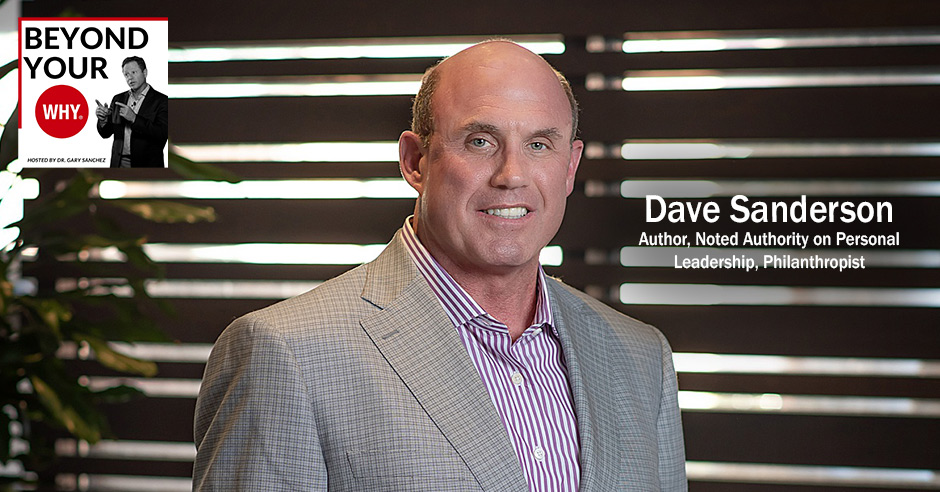
When you have the WHY of contribute, you always strive to contribute a greater cause, add value and have an impact on the lives of others. If this is your why, then you want to be part of a greater cause, something that is bigger than yourself. Our guest today best exemplifies this kind of WHY. Dave Sanderson was on US Airways Flight 1549, the one that’s called “The Miracle on the Hudson.” He was the last person to get off the plane. Dave emerged from the wreckage that day with a new mission to encourage others to do the right thing. Dave’s is a great story of how he helped others and how he finally had to help himself. You’re going to find it fascinating. Join in the conversation and learn how his WHY of contribute came into play during the incident and how it continues to drive his passion and purpose today.
—
Watch the episode here
Listen to the podcast here
The WHY Of Contribute: Discover How To Live Your WHY With Miracle On The Hudson Survivor, Dave Sanderson
In this episode, you’re going to meet Dave Sanderson. He was on US Airways Flight 1549, the one that’s called The Miracle On The Hudson. He was the last person to get off the plane. His story is fascinating on how the water came in and what he did to jump over the seats to get to the back to help everybody else out, and how he had to survive and save himself at the end when there was no more room for him on the plane or in the little boats. It’s a great story of how he helped others and how he finally had to help himself. You’re going to find it fascinating. I can’t wait to share it with you.
We’re going to be talking about the Why of Contribute, to contribute to a greater cause, add value, and have an impact on the lives of others. If this is your why, then you want to be part of a greater cause, something that is bigger than yourself. You don’t necessarily want to be the face of the cause, but you want to contribute to it in a meaningful way.
You love to support others and relish successes that continue for the greater good of the team. You see group victories as personal victories. You are often behind the scenes looking for ways to make the world better. You make a reliable and committed teammate, and you often act as the glue that holds everyone else together. You use your time, money, energy, resources, and connections to add value to other people and organizations.
I have a fascinating guest for you. When US Airways Flight 1549, or the Miracle On Hudson ditched into the Hudson River on January 15, 2009, Dave Sanderson knew he was exactly where he was supposed to be. As the last passenger off the plane on that fateful day, he was able to use the skills and resources he learned throughout his life to not only survive but help others.
He emerged from the wreckage that day with a new mission to encourage others to do the right thing when faced with a life-changing decision. This profound experience changed his life. Now he travels the globe sharing his inspirational and motivational leadership message to help people make a difference in how they do business and live their lives. Named one of Inc.com‘s Top 100 Leadership Speakers, Dave travels the world to share his inspirational leadership lessons raising over $14.8 million for the American Red Cross. Dave, welcome to the show.
Thank you for having me. I’m honored to be with you.
This is going to be interesting. Your intro told a lot about your story and I want to dive into that. Before we do that, can we go back a little bit in your life and let’s learn a little bit more about you?
I’d love to share a little bit more about how I got to that point. All these moments in your life matter are all make up for that one defining moment. Let’s talk about it.
[bctt tweet=”All these moments in your life matter, they all make up to that one defining moment.” username=”whyinstitute”]
Let’s go back. Where did you grow up and what were you like in high school?
In high school, I grew up in a place called Winchester, Virginia. Winchester’s at the point, the northernmost point of the South. I was there. I was an athlete. I played all sports. I was one of those athletes that was good at everything, but not great at pretty much anything. I could compete, but I wasn’t standing out between that. I was also the first president of our key club. The only reason I bring that up is if something very significant happened during that time that set me on this pathway of where I’m at nowadays.
Tell us what happened at the key club.
I was asked to be the president of the key club. The only reason I was asked initially was because I tore my knee ligaments up and third football game of the year, I was pretty much out the rest of the year. I’m the gentleman who was starting up came to me because he needed a leader and asked me if I’d do it. I did it. We started with nothing.
One of the things that he did for me is introduced me to people around the city of significance. One of those people happened to be the US Senator who was out of Winchester. His name is Harry Byrd Jr. I got the opportunity to meet a senator when I was a junior in high school, which was very significant because not to see what leadership was like at that level.
With that opened up for me is a couple of different things. Number one, since I was the president of the key club and I got that opportunity, Senator Byrd was holding a fundraiser in Northern Virginia. One of the people he invited was one of my heroes, Senator John Glenn, the first astronaut to orbit the Earth. That was like nirvana for me or an icing on the cake. I got to meet not only a senator, somebody who was not only historic but did something that nobody had ever done before, which gave me an eye-opening experience to, “Anything’s possible.”
As you know his story, he started at NASA when NASA was starting nothing. He was the third one up. That gave me the perspective, “You can touch people and get a hold of people if you do the right thing and work with people to do that.” I’ve never been afraid to talk to people and I’ve had opportunities to meet all these great people because I opened my eyes and was never afraid to approach people.
[bctt tweet=”You can touch people and get a hold of them if you do the right thing.” username=”whyinstitute”]
You graduate from high school and then what happens to you? Where’d you end up?
I went to college at James Madison University. I wanted to play football, but the second practice in, I was a walk-on. I was pretty much nobody. I hurt my knee again and my dad had come to Jesus talk with me, say, “You’re not going to play football. You’re not going to be a pro as you dreamt. You better get an education.” I was in the first International Business major class that Madison offered. As a freshman, they started the International Business discipline. I was one of the first people who graduate outback at James Madison.
What do you go into?
That’s exciting because my goal was to get an international business, and this was during the recession in the early ‘80s. There were no jobs in that era. I went home and my dad gave me 30 days to get a job to be out of the house. One of the great things I learned from my dad is he was a man of his word. When he said something, his promise meant something. In 30 days, Gary, I didn’t have a job. He helped me get my first job, and that was being a second assistant restaurant manager at a place called Howard Johnson. I knew nothing about hotel restaurants, but I was out of the house. He lived up and I lived up to that commitment.
What was it like being a second assistant at Johnson’s?
All of a sudden, you come out of college and you’re feeling pretty good about life. You got this great education and now, you’re working on second and third-shift learning skills that you never think about learning. That turned out the third stop is where I ended up here in Charlotte, North Carolina. That’s how I got here.
If I didn’t have that opportunity, if my dad didn’t make me do that, my whole destiny would’ve been changed because what happened for me is I was here. I wasn’t working the 2nd or 3rd shift. I was a low man on the totem pole. We didn’t lock up as you remember Howard Johnson was a 24-hour gig. I was there pretty much into the middle of the night, but there was a gentleman and a lady would come in every night. His name was Bill and her name was Bonnie.
They would come in. He’d go pickup truck and always wore a flannel shirt. What I found out about Bill, we’d come and talk, he’d come in and have his coffee. We’d have his ice cream and we talk. He owned over 80 movie theaters and restaurants in North and South Carolina. He was a multimillionaire back in the early ‘80s. His nickname around Charlotte was the Sam Walton of Charlotte. He was one of those guys, as you never know. He took me under his wing.
It happened to be on December 24th, 1984 when everything changed. He came to the restaurant early that day. He said, “I want to show you what I got my wife for Christmas. It was a brand-new blue Corvette.” I’d never seen a Corvette couldn’t spell and never smelled a Corvette, but it was cool. He threw me the key and said, “Let’s take a ride.” I’m like, “Let’s take a ride up and down Woodlawn Road.” We got in the car and we went up and back.
I said, “Bonnie’s going to dig this. She’s going to love it.” “You need one of these.” I said, “I’m making $13,000 a year. I’m working the second shift.” He goes, “That’s your problem. It’s your mindset. Do you mind if I coach you on how to have a mindset of success?” I had nothing to lose. For the next thirteen years, he took me under his wing. He was teaching me the mindset of success and how he became what he became. He was taking me to places. I was meeting the CEO of Bank of America which then was NCMB Bank, and First Union, and all the people he was running with.
I was on the edge of this, watching how he did it. Fast forward to May 1997, he called me to his office. He said, “I want to share a couple of things with you. 1) I’ve got lung cancer.” Bill smoked a couple of packs of unfiltered cannabis a day. This started back in the ‘20s. It wasn’t shocking, but it was like, “Okay.” He walked over to his desk, pulled out some papers, and sat down next to me. They put them on my lap. I’m like, “What’s going on?” He goes, “This is what I wrote down in 1920. These are the lessons. This is what I wrote.
When I got these lessons back in 1929. I want to give this to you, but you got to promise me something.” I said, “What?” He goes, “Do not let it die with you.” Bill passed away in September 1997, but he gave me these notes that he wrote in 1929, the mindset of what you have to have, what he learned during the roaring ‘20s. If my dad hadn’t lived to that promise, I never would’ve gotten to that opportunity. Now, I made a promise. I had to fulfill that promise.
What were in those notes? Give us some insight into what was written there.
He wrote all these lessons down. One of the lessons I always remember was that I have an alternative vision for the future. What does that mean? He shared with me about that and he took notes when he met Franklin Roosevelt in 1938. He idolized Roosevelt. One of the things he told me and wrote down is Roosevelt was always positive. He always had a vision for a bigger America and how it should be. That’s why leaders come at the right time in comfort countries.
He wrote about the time that he met Ronald Reagan in the early ‘80s. He had the same situation with Ronald Reagan. Reagan was always talking about that shining stick on the hill. He was always positive. One of the things he taught me and one of the lessons was you got to have an alternative vision. You got to look at the bigger picture of how your life could be and what you could do with your life instead of going down a pathway that other people want you to take.

It was a tremendous lesson about faith. One of the things that he shared with me was because we lost a child, a seven-month-old back in 1990. I was messed up a little bit. I wasn’t producing as much as I probably could have. He shared what happened to him. He had a son back in the ‘30s that he got drafted to go to Korea. He said, “I could have stopped it. I had the money to do it. Everybody’s got their responsibility.” His son died in the Army in Korea.
He felt guilt for a long time, but then he realized that, and this is a lesson to think of going from the spiritual side. He said, “The same God that started the world was the same God with my son, the same God with your son. There’s a reason behind it.” That helped me a lot to get my mind around a lot of things. If you have faith, there are reasons behind it. You don’t know why, but you got to have faith that’s going to work out.
These are the kinds of lessons that he was teaching me all these years. That’s why I wrote my book From Turmoil To Triumph. These were the lessons that I got to implement that day on the Hudson River that came right from faith to looking at being able to do the mission and looking at how to be more responsive. That’s a long-winded answer, but that’s an amazing time now it’s my commitment to be able to share what he shared with me with the next generation.
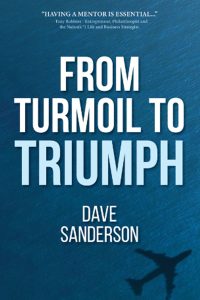
How did Bill learn all of that?
He had a mentor and his mentor came to him in 1917. Bill lived around here in the Charlotte area. His dad was a farmer. As the story goes, as he shared with me, they’d come in to sell their crops because Charlotte was the hub and this guy would come in. He is always in a suit. He would come in and he’d talk. Bill was anxious. Bill loved movies in the early ‘20s but he didn’t have any money. The guy showed him how to get a few pennies together and get his first movie in his first movie house.
All of a sudden, he was learning from this very successful businessman. It got passed down from somebody 1910s to Bill then Bill ultimately was looking for somebody to pass it on to. I happened to be the guy there that he got and I agreed. I told my mom and dad. They were like, “Who is this guy?” I shared with them what happened. They’re like, “If he can offer you one bit of advice, take it on,” but he taught me much more than that.
Did you ever ask Bill why he picked you?
I never asked him why, but he told me a story around why. This came down when he was opening up his first movie theater in South Carolina in the 1930s. He never told me directly but hinted at why. He said that he was going down and it was a long drive to South Carolina. It wasn’t interstate highways. He needed somebody. He needed to hire a manager, somebody to manage that.
One of the bits of advice he got when he was starting his own business was, “Go on your instincts. You can do all the analysis you want but if you go on your instincts more often or not, it’s going to play out.” That gentleman stayed with him through the entire 1960s. He was with him the whole time in the 1960s. If I look back when he said that, told that story, he told me that he had something instinctively connected I don’t know why, but I thought, “I don’t question why, but I happened to be there at the right time. I was a recipient of a gift and that gift’s going to be passed on.”
[bctt tweet=”Go with your instincts. You can do all the analysis you want. But if you go in your instincts, more often or not, it’s going to play out.” username=”whyinstitute”]
He passes away in 1997. What happened to the movie theaters?
He’d already passed the movie theaters on. He was pretty much retired. The only reason I found out the backstory, I found out he was at movie theaters is when I started dating my future wife, I had no money. He gave me a couple of movie passes to go to take my girl out to the movies and be a hotshot. I went out. It’s in Queens Park. It is no longer there, but it’s down. It was about 2 miles from the restaurant. I took her there. We got in there to check in.
The guy says, “Tell Mr. Bill, ’Hey.’” I’m like, “What?” I went back and he said, “How was your experience?” “It was great. The guy took care of us.” He goes, “That’s one of my theaters.” That’s when I found out. He sent me to check in on doing what he wants to do. He had passed those on several years before or during that time. He was semi-retired at that point. He was coming to Howard Johnson every night to have coffee and ice cream.
He passes away, gives you his lessons, and then what did you do with them at that point? Take us on your career path.
I was in sales at that point. I was pretty successful and doing well. After this happened, what did I do with him? I put him in a journal and I didn’t look at him. What happened 4 or 5 months later is when I was asked by a gentleman named Tony Robbins to be his assistant head of security. I was on the security team. I had proximity to another master.
I was an assistant, which meant I managed the floor while other people managed other things. About two years later, in 2000 or so, he asked me to be head of security. I’m traveling and supporting Tony directly and the team. I was having these conversations with Tony, getting distinctions on these things that I learned, and getting new distinctions from Tony on some of these things.
For about many years, I was around Tony and then the head of security. I had the opportunity to be around masters. I learned from Bill but Tony taught me proximity’s power. If you’re around people who have influence and know things, that’s power. My dad told me that years ago in different ways. He said, “You don’t have to know everything, but you have to know somebody who does know everything.” He told me that when I was in high school and when I was a kid. It turned out to be true. For the next years, Tony gave me the opportunity to have a doctoral lesson in how to manage your mind especially that played out on January 15, 2009.

Were you working with Tony at the time that you were on that plane?
I was that and working for another company at the same time. I was working hard on both things. Tony was the only person who called me that night after the plane crash. The only thing about Tony, he’s got resources and if he wants to find somebody, he will find somebody. He’s the only one that found me sitting in a hospital recovering. He did a YouTube on that conversation. You go out to YouTube and see it and told a little bit about our conversation. It was very emotional for me. I wasn’t one of his people. I was his guy. That meant a lot to me.
Take us into that flight now that into flight 1549. Where was it going and where did you get on?
I got on in LaGuardia at the end of a three-day business trip. I got done early and changed the flight. I was on the first-class seat on the 5:00 flight, changed to flight 1549 at 2:40. I got seat 15A, 1549 on January 15th. A lot of fifteens going in there. I’ve got numerologist telling me what that means and that’s a whole other discussion, but nothing unusual. The plane was delayed. You have been out of LaGuardia. It was 11 degrees and was snowing. That’s not a big deal. It happens all the time. Nothing unusual about the takeoff. If you’ve ever taken off LaGuardia for folks who haven’t, the runways out into the bay, and then the normal flight pattern is they turn north and they start making their turns. Nothing unusual until about 60 seconds after when you hear a big explosion. That’s what got my attention.
I wasn’t paying attention. I was reading the magazine because I know everything. I’m Mr. Flier. I know everything. All of a sudden, you see fire coming out from needs the left wing like okay but the planes have multiple engines. We’ll go back. We get off the plane. I’m not going to get home early tonight, but no one knew at that moment, including the crew at that exact second it would happen on the left side of the plane where I was at. Also happened on the right side of the plane simultaneously. It knocked both engines out. The birds knocked them out simultaneously. The geese did. Now you have no power.
What did that feel like when you had no power?
It was like you’re gliding. That’s what was startling at first. You hear nothing. It’s quiet. I tell people, “Talk to any passenger. They’ll tell you the same thing.” It was quiet. You hear a pin drop.
People are looking at each other.
That’s where God’s grace entered because no one freaked out. No one was looking around or going crazy. Everybody’s looking around. I was like, “What’s going on?” They started banking. I’m like, “We’re going back to the airport. No big deal.” As he banked, I looked out the window and the skyline of Manhattan was right there. We were a little lower than the highest buildings. I looked out a little further. You see this bridge coming up which turned into the George Washington Bridge. I’ve never seen that bridge before in my life. I said, “Something is going on.”
Every second, things are going on until he says his famous words, “This is your captain. Brace for impact,” then at that point, it’s serious. Something’s going down and it doesn’t look good at this point because now, you’re clearing the George Washington by roughly 400 feet. The bridge is 600 feet up. The plane was 1,000 feet and at that point in descending. He clears about 400 feet and the only thing you see is water.
I’ve never seen a successful plane land in the water. They’re always toppling. That’s the moment there. You got to get your ducks in real pretty quick. You got to get things lined up in every which way pretty quickly and get your game plan together. If you do survive, what are you going to do now? That’s pretty much what happened. After I said my last prayers, I got my head down. I played sports. We always had a game plan. In business, I always had a game plan. My game plan was aisle up out. I kept it saying in my head. If I survived, I at least had to have a play game plan.
What do you mean, “Aisle up out?”
I was in seat 15A get to the aisle, go up in the middle row, and get out. That was my game plan because I wasn’t on the wing, I was four rows behind the wing. I had to go up to get out. One way or another, I had to go up. Aisle up out was my game plan.
The first time he came on the intercom was to tell you to brace. He didn’t tell you what was going on or what was happening. Nothing?
The only time he came on, that’s it. He was very succinct in his communication which was one of the great attributes that happened that day. Not only he, but the crew was very succinct. They kept saying, “Brace,” because they knew that was what was coming up.
What was it like when you hit the water?
It is an extremely hard hit. He estimates he hit between 100 to 120 miles an hour. If you see the hit and I’ve got to do my talk and I show a little video of it and 15A towards the back. The back hit first, which meant the brunt of the hit. It came down then it started right. It started skidding to slow down. It was a very hard hit. Water started coming in immediately because the back of the plane got torn off on the hit. Water starts coming in. Where I was, the water was about ankle to knee deep immediately it was 36-degree water. Back of the plane, it was more like chest-level deep water.
The people in the back of the plane were seat belted in and the water was chest high right off the bat. How long did it take to go from the hit to where you were stopped?
It took approximately 20 to 30 seconds from hit down sliding and totally stopping.
Why do other planes topple and yours didn’t?
He hit it perfectly. I’ve heard other pilots say the same thing, “One little degree, either toppling into New York City or Newark,” and that’s a bigger disaster than what happens. One degree nose down, you’re going straight to the bottom of the Hudson. One degree back, you’re going backward. He had to hit it perfectly.
How did he know to do that?
He had all those years of his moments, practice, and preparation.
Did you hear the back of the plane rip-off?
No. When we hit, I looked out the window. I saw lights. It was such a hard hit. I went back forward. It was that hard of a hit. It was a very jarring hit. The engine in the back of the plane was gone.
Water starts pouring in right away. Twenty seconds later, you’re stopped. What’s it like inside the plane? What’s going on?
The term I used that night with Katie Couric on CBS was controlled chaos. People were now in their heads. No one was pushing each other and get out of the way. It was moving quickly. People had to move because water is anywhere from the waist to chest level, deep in the back, by knee level deep where were you at, you got to go. You got to start moving. There’s no time to wait. You can’t mess around and think, “Let me get my stuff.” You got to go.
You did go. You did not get out. You were in seat A you said.
15A on the left side.
You were at a window.
I was at a window, four rows behind the left wing.
Was there somebody next to you?
The plane was full.
You had to wait for them to get out for you to then go out. Take us through it. The plane comes to a standstill.
It started going down for about 24 minutes when it was like this. It took about 24 minutes from going from relatively flat to backside in and up. What happened to me is when you know things were moving, it was my time to go. I got to the aisle and I’m like, “Aisle up out,” but then something happened that changed everything. I started hearing my mom talking in my head very quickly. There’s something my mom would tell me when I was a child and all of a sudden, I heard my mom. She passed away in 1997.
“If you do the right thing, God will take care of you.” I heard that and I had to make a decision. The decision I made was I climbed over the seats to go towards the back and see if anybody needed help because I was fine. I know anybody in the back was fine, but I was fine. Instead of going out, I climbed over the seats to get behind it. If things were moving pretty well, I asked if people were moving. There’s nobody standing still.
[bctt tweet=”If you do the right thing, God will take care of you.” username=”whyinstitute”]
I got behind the last person and I started making my way out. At that point, you’re about chest-level deep water. The back hit first. the bins had broken open and all the luggage is floating around. It’s dark. This is late afternoon winter in New York. The first light that I saw was on the right side of 10F and I’m like, “I’m out of here.” I got to the door. I started looking out and there was no room on the wing for me and no room on the boat for me.
That’s why it was amazing though. People were already being rescued. That’s why I was inside the plane waist-deep in 36-degree water for about seven minutes, holding onto that lifeboat because the lifeboat was floating out into the river. They were yelling at me to hold on so they could have access to the wing to get out.
When you think about going into a cold plunge, they’re about that. Sitting in there for a minute is excruciating, much less seven minutes. How long can you survive in 36-degree water?
EMTs told me I shouldn’t be around. It usually is no more than 90 seconds. What I’ve heard from other people is, “You get that adrenaline going.” That speeds your metabolism up, which I think is exactly what happened to me. I was like, “Let’s go.” I’m going into that athletic mode. Now I’m into play mode. I think that’s what happened because about seven minutes later is when I felt the plane shift.
I found out later that as one of the tugboats that was a part of the rescue backed out, he hit the front of the plane. When he hit the front of the plane, he shook the plane. I felt water going up my back. I’m like, “I got to get out of here. It’s going down.” That’s where I jumped in to start swimming to the closest boat that I could find at the end of the wing.
It was the longest 15-yard swim of my life because not only was I fully clothed. I’ve already been in 36-degree water for 7 minutes and there’s jet fuel in the water. When we were talking about your eye situation, that’s what happened. That’s why I wear glasses. I found out when I got back. I had jet fuel in my eyes. I got stuck in my eyes. That’s why I had a little hazy perspective that night, but I got there. My mom and dad had given me swimming lessons at the Red Cross when I was a young kid. I made everybody get out of that plane to swim. I had to swim for my life.
They pulled you into one of the boats.
You would think that. I got there and they started yelling at me to, “Climb.” The ferries are about 10 to 12 feet up and then a ladder there. I yelled up, “I can’t,” then I heard my mom talk to me because the word my mom hated most of my life was can’t. If you grew up in my house. You said, “I can’t,” to my mom and she would say, “If you can’t do it, you’re going to do it.” What I realized after she passed away, I talk about worldview a lot. People’s perspective of what’s going on is their worldview. Her worldview is, “If you can’t, you must.” She won’t accept it. I got 1 arm up and 2 men grabbed me and pulled me on one of the ferries. To this day, I don’t know who they are. That’s how I got out.
They pull you up into the boat and then what happens?
You think everything’s cool. I made it, but that’s not what happened. That’s a moment of adrenaline. You go. When you think you’ve made it, you said let it all go out. I equate it to you living out West and then when I spoke in Oregon, I saw these wildfires. I see these firefighters. They’re going in. They come out, they’re sitting on the curb, and they got nothing left. That’s what happened to me.
I was cold. I’ve been in the water now for a tent amount of time and the air temperature is 11 degrees. I could barely breathe. That’s the moment I thought I’m not going to make it. Fortunately, someone was there with a phone. They’re loud. Please let me get my message out. I said, “This is your father. I’ve been in a plane crash.” That’s all I could get out. At least I got the message out that I was alive. That’s how my family found out that I survived.
Did everybody survive or did some not survive?
It’s the only one in aviation history that everybody survived.
You’re sitting on the boat, freezing at an 11-degree temperature. Did they put you in blankets? Did they put you in hot water? What happened to you?
That would’ve been great if all that would’ve happened. None of that happened. They didn’t have any blankets on the boats because the boats were deployed immediately when after the plane crashed into the water. Arthur Imperatore of the New York Waterways set the boats out. Go. They weren’t supplied with all that. I went to the New Jersey side because I went out on the right side of the plane. Those ferries were going to New Jersey. The left side went to New York City. I got there. They put me down on the floor in his triage center and stripped all my clothes off. I’m sitting there in my underwear. I didn’t even know what was going on. My EMT tells me, “I’ll be right back.”
I’m on the floor pretty much naked. A guy walks up to me with a card hand and says, “I need your name and date of birth.” I give it to him and he puts that card around my right ankle and he walked away. I grew up in the ‘70s and there was a show called M*A*S*H. When they tagged your toe, you didn’t make it that’s exactly what I thought. I’m like, “I’m dead.” The movie Ghost is true. I’m watching this whole thing play out. Fortunately, EMT came and took my blood pressure and it was totally out of control. That’s when things started happening for me.
They didn’t give you blankets or anything to keep you warm.
They didn’t have anything.
That doesn’t sound like a lot of fun.
It’s one of those days that you were challenged at every point. That’s why I tell people, “One of the things I learned from Bill, Tony, and being around these people is it’s all about your mindset. If you can’t control your mind when all this stuff’s hitting around you, you’re not going to have a chance.” That’s why I try to teach these younger people, these young kids who are smarter as a whip but they’re having problems not controlling their mindset with all the COVID and all that other stuff that’s going on. They don’t have the wisdom yet to know that if you have that positive mental attitude and have that mindset, you can survive, and get another shot to play. That’s happening a lot to these kids.
I’ve talked to a lot of these kids and they’re scared because they’ve never had to face adversity. That’s one of the things my parents at least made me do when I was young, face adversity. They made me have consequences for my decisions. I’m a failure at that with my kids. I want my kids to make sure they had a good opportunity. One of the things I would do over if I had this whole thing to do over is I’ll put them in situations where they had to make a decision and they had a consequence. They can know how to make a decision when because everybody’s going to have that life-defining moment.
They ended up getting you to the hospital, hypothermia, and all the rest. How long were you in the hospital?
I was only in the hospital overnight because I want to go home. I shouldn’t have gone home. I was very fortunate that the circumstances played out where I could get home. When I got home, I had made some promises. I go to the doctor and all this and I finally did that. If I look back on this, if you talked to my friend at Palisades Hackensack Medical Center, he would say, “We shouldn’t have released him.” I was in no condition to do anything at that point, but I’m trying to man up and do it and I did.
What are the lessons that you learned from that experience that you now teach about? I know you speak all over the world. What are some of the things that you talk about?
One of the big learnings from that day came from that situation, but probably a couple of weeks after when it clicked in my head. I was in doing a lot of media with a lot of the crew and a lot of the passengers. I was on Good Morning America with other passengers, and the crew, and we got done. We were sitting in the green room talking and stuff. One of the passengers started getting very emotional. It was an emotional outburst. I’m sitting there thinking, “What’s wrong with this guy? We survived the plane crash. We are on national TV and how bad can he get?”
All of a sudden, I found out later that he was going through a divorce and he lost his job. His meaning of the plane crash was devastation. I start thinking, “How many times in my life have I judged somebody quickly before I understood their backstory or a little bit about them? What does that cost me financially, emotionally, and relationship-wise? How many times have we judged somebody quickly and we don’t even want to talk to them?”
That’s what’s going on in this country. We’re judging people immediately. We can’t even have a conversation without getting into an argument. I said, “If I could change that one thing, be less judgmental, how could that help me?” I started doing that and that’s opened up everything in my life where I’m at. I believe what Martin Luther King said, “Judge people by the content of their character.”
That’s the biggest lesson out of this, but one of the things that played out that day is awareness. You got to be aware. You got to understand what’s going on around you. You can’t just let somebody else direct you all the time in your life. You got to stay aware. I wrote about one of the key skills that day played out for me in my blog.
This is the key skillset everybody needs right now. Whether you’re going to look for a new job or looking to be an entrepreneur, it is the skillset set of anticipation. It’s the ability to anticipate what’s going on next and see the bigger picture. I talk about the alternative vision for the future that Bill taught me. You have to anticipate. I realize that there are two skillsets that I coach people on now. If you want something, you better be able to anticipate. If you can help somebody anticipate their next move and help them, it’s your asset.
The second, which played out exactly during the plane crashes, is resourcefulness because you don’t have a lot of resources when you’re in a plane crash but if you can use the resources that you do have then become resourceful. People are looking for people who are resourceful. There’s not a lot of empty money going around and resources are available all over the place. You got to be able to use your skillsets in a way to be an asset to somebody else. It is anticipation and resourcefulness.
Once all of this was over, you were on the TV programs. You didn’t go back to work with Tony or did you?
I did for a couple of years. In fact, late in February, which is about a month and a half after this all happened, he had an event in Secaucus, New Jersey. His assistant called me and said, “You are going to be there.” I’m going through all this stuff. I said, “I’ll be there.” I show up and I wasn’t of much use to him that weekend. We were doing our pre-event get-together. I said, “I want to give you a heads up on something. I’m probably going to have more media here than you will.” He starts laughing.
I knew what was happening. CBS and everybody else were showing up outside because I was there. I was pretty useless to him at that event, but at least I was there for him and he saw me show up. I wanted to show up for him because he showed up for me that night. I talk about loyalty. I’m big on loyalty. You got to have your team’s backs or you’re never going to have any trust whatsoever with him.
I’m surprised Tony didn’t have you come to speak.
I’ve had a couple of things. He’s been very kind to me. You got to remember those are Tony’s events. He pays a lot of money to have those events.
From there, you went on to start speaking, holding events, and teaching. What was that like for you?
Initially, I was doing churches and local events. I didn’t know what I was doing. I was being asked every fifteen minutes to do something. I was trying to work and serve Tony. I wasn’t not serving my family, which was something I looked back on, I would’ve changed. I took the Zig Ziglar approach. I said, “For the first 50 or 75 things I’m going to do, I’m going to do it.” What Tony told me was this, “Speak from your heart. Don’t ever take notes.” I’ve focused on that. A couple of things opened up. One thing that opened up was when I was invited to speak at a fundraiser for the American Red Cross in Charlotte.
They asked me if I would speak. It was a Red Cross month in March a couple of months later. Of course, I was going to do it. They were there for me three times that day. I’m going to do anything I can. I came and all of a sudden, they raised over $100,000 at that event, which got my name out. I was asked to speak to one of their major events in Washington DC which happened to be Supreme Court. I had the opportunity and they raised $6 million that night. All I did was speak. I don’t know if you’ve ever been to the Supreme Court, but you have to have a justice sponsor you.
You can’t just walk in and say, “I want to do an event.” The justice who was sponsoring that now is Justice Anthony Kennedy. When I got there, I got introduced to him, “Come to my quarters. Give me three minutes about what happened that day.” He took me into his quarters for about 2 or 3 minutes. I share with him a little bit of what I shared with you. He came back out and I got my picture taken on.
I’m like, “I’m with the Supreme Court Justice.” It’s not because I’m the greatest, but because I gave up being judgmental. I said, “I’m here to serve. It’s not about me.” That is what opened up everything for me. That gave me a strong reference for if you come from a serving leadership heart, things will open up for you in your life.
What’s next for you? What’s your plan for what’s coming up?
We’ll go back to Bill’s notes. Back in 2016, when I was writing my book Moments Matter, I found the notes in this credenza. I made a commitment back then. One of my major missions is to teach what he taught me to 1 million people in 10 years. This is my mission Tony always taught me, “Make the big goal and you’ll figure out how to do it. You don’t have to figure out how to do it right now.” It’s taken me a few years to figure out how we’re going to do it.
I got my new book out. I’m running another book for the 15th anniversary. I’ve got my magazine called Moments Matter magazine. I’m sharing information with other people in my magazine. I’ve got a course out teaching certain lessons of this in the course. I’d love to speak because that opens up talking to people one-on-one in Orange group sessions. That’s how we’re doing all because I found them and I made this big goal and all of a sudden, I’ve started to figure it out.
My last question is, what’s the best piece of advice you’ve ever given or gotten?
One of the best pieces of advice that I learned, but not in this terminology, I’m rephrasing it, is faith removes hesitation. What does that mean? A bigger belief system is, “Things happen for a reason.” If you have faith, it removes any hesitation in taking action. It’s those people who don’t have faith who get stalled and stifled. They don’t make progress. One of the last things I talk about when you hear me speak is gratitude.
Let’s start with gratitude and grace is fueled by gratitude. My thought process is the more gratitude you give, the more grace you get. The more grace you give, the more faith you have. The more faith you have, the more action you’re going to take to improve somebody else’s life. I talk about this at the end of my talk because I want people to understand, “You can’t have fear with gratitude.” You have gratitude. You’re giving thanks to something bigger. That faith has come inside you and you will have determination, persistence, and perseverance to be able to push through when those times get tough.” What happened to me on January 15th is a reference for that.
You’re about helping and about unleashing other people.
It’s all about becoming a servant leader and helping other people first. Don’t expect anything. My kids are Millennials and Gen Z-ers. Sometimes they expect things first. In fact, I had somebody come to me and all he did is wants. He didn’t offer anything. If I ever speak to a younger me, the piece of advice is, “Give first. Give something of value to somebody first instead of asking.” That’s what Bill did for me. He gave me those tickets. He didn’t have to do all this. It taught me a great lesson. “Buy this gift first. It comes back tenfold in life.”
If people want to follow you, learn from you, hire you, or have you come to speak, what’s the best way for them to get in touch with you?
The easiest one is to go to my website, DaveSandersonSpeaks.com. You can see all my materials. You can get in touch with me. I’m coming out with new content. I’m committed to coming out with new content every week. If you want to see my new content, I post that on LinkedIn. I get to mention the lessons around anticipation and why it matters. Go to LinkedIn and view good content and some new information from me. If you want to check in, go to DaveSandersonSpeaks.com. I’d be honored to connect with you.
Thank you so much for taking the time to be here. I enjoyed knowing your story and am excited that you survived that crazy day, but it’s great to see that you’re giving back much and making an impact in other people’s lives. Thank you so much for being here.
Thank you for having me. I hope you have a blessed day.
—
It’s time for our segment, which is Guess Their Why. I’m going to pick Amelia Earhart for this episode. I’m picking her because she and I both spoke at an event. I got to hear her story she’s not related to the original Amelia Earhart. It’s a fascinating story of how that came about. That doesn’t take away from what she completed and what she did on her own. As a college student, she learned to fly a plane and then took on the task of flying around the globe and she did it. You got to see her story and hear her speak sometime because it was well done. Great lessons. I believe that her why is to find a better way and share it.
She was always looking for better ways. When something got stuck, blocked, or wasn’t going to turn out like she thought it would, she would work and find another way. She would find a better way, and everything kept getting better. I believe that Amelia Earhart’s why is to find a better way and share it. If you’ve not yet discovered your why, you can do so at WhyInstitute.com with the code PODCAST50. If you’ll love the show, please don’t forget to subscribe and leave us a review and rating on whatever platform so that we can bring the why to one billion people in the next many years. Thank you much for reading and I’ll see you in the next episode.
Important Links
- Dave Sanderson
- Inc.com
- From Turmoil To Triumph
- YouTube – Tony Robbins praises Dave Sanderson Miracle On The Hudson
- Moments Matter
- LinkedIn – Dave Sanderson
- Dave@DaveSandersonSpeaks.com
- https://www.Facebook.com/Dave.Sanderson.73
- https://DaveSandersonSpeaks.com/Wp-Content/Uploads/2023/02/Moments-Magz-2023.pdf
About Dave Sanderson
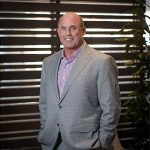 Dave Sanderson is an Inspirational TEDx Speaker, survivor, author, philanthropist, and nationally sought-out leadership speaker.
Dave Sanderson is an Inspirational TEDx Speaker, survivor, author, philanthropist, and nationally sought-out leadership speaker.
When US Airways Flight 1549, or ‘The Miracle on the Hudson,’ ditched into the Hudson River on January 15, 2009, Dave Sanderson knew he was exactly where he was supposed to be. As the last passenger off the plane on that fateful day, he was able to use the skills and resources he learned throughout his life to not only survive but help others. He emerged from the wreckage that day with a new mission: to encourage others to do the right thing when faced with a life-changing decision.
This profound experience changed his life. Today, he travels the globe sharing his inspirational and motivational leadership messages to help people make a difference in how they do business and live their lives.
Named one of Inc.com’s Top 100 Leadership speakers, Dave travels the world to share his inspirational leadership lessons, raising over $14.8M for the American Red Cross.

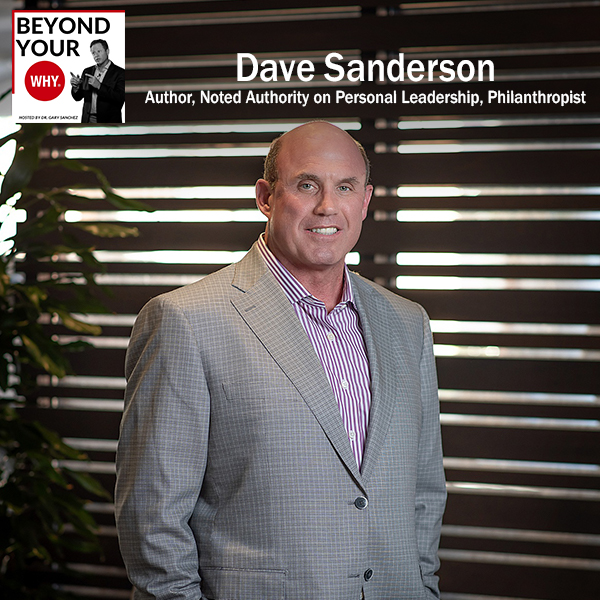
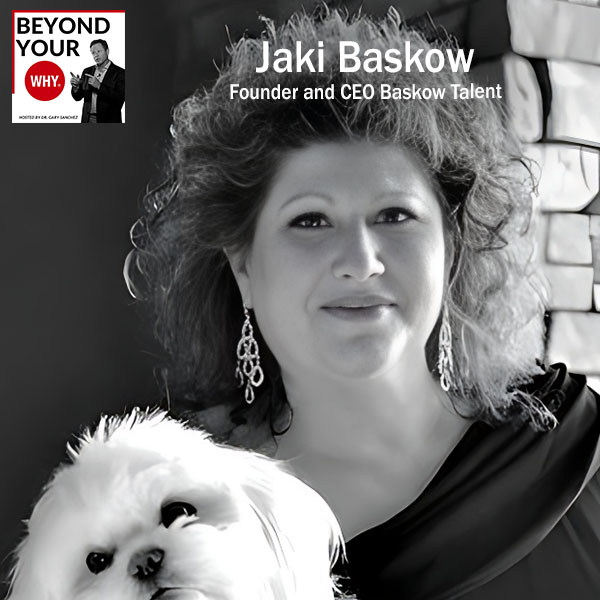
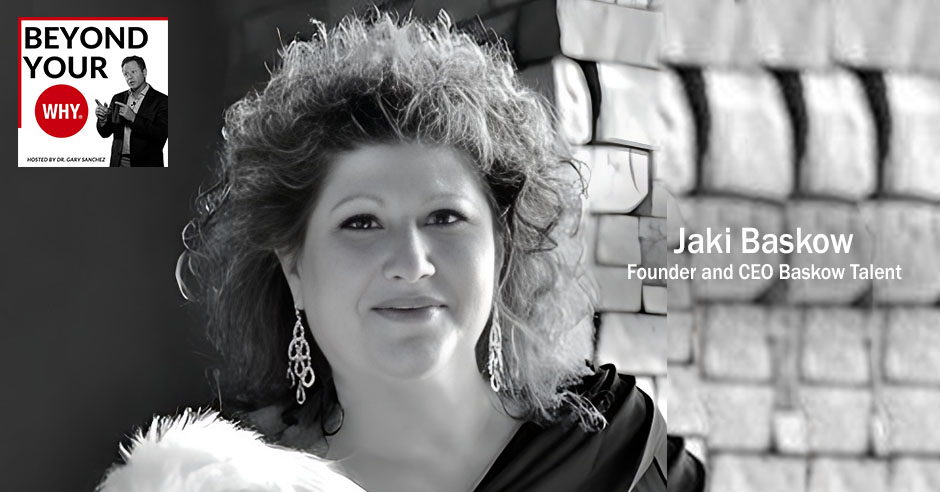




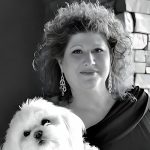
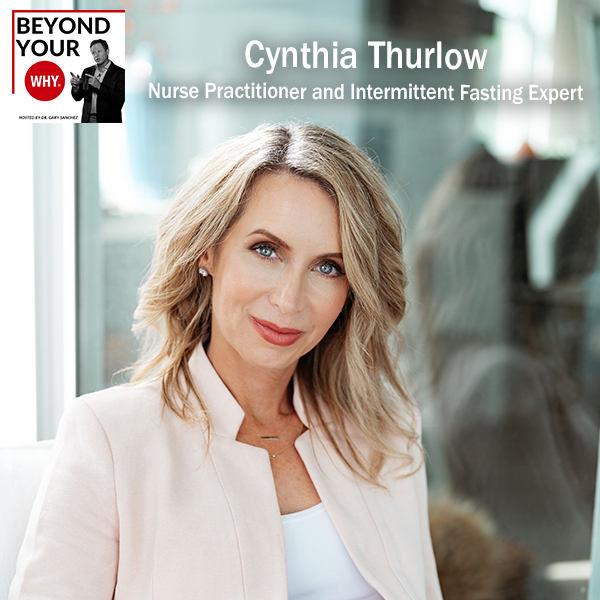
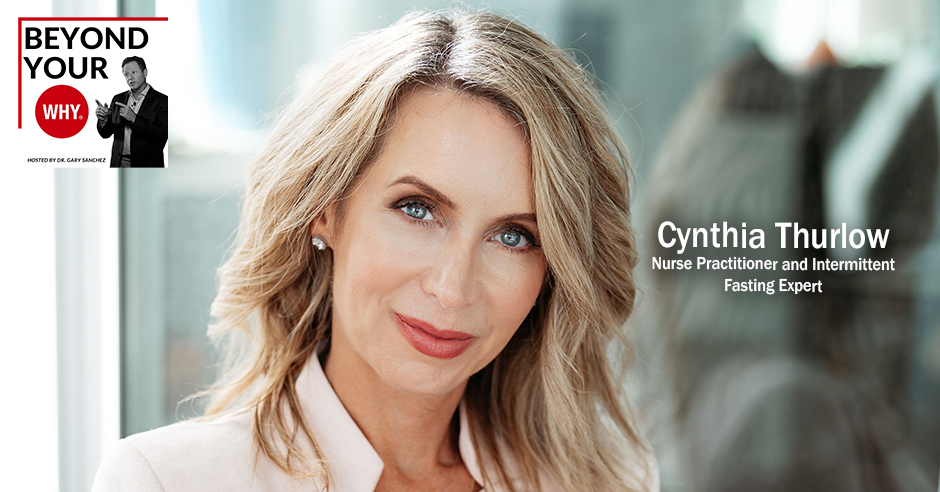

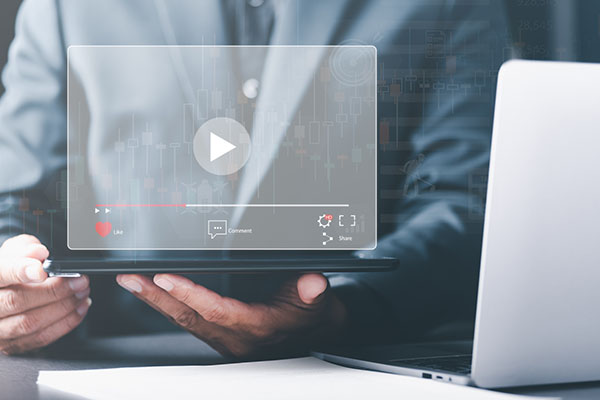

 Cynthia Thurlow is a nurse practitioner, author of the best selling book Intermittent Fasting Transformation, a 2x TEDx speaker, with her second talk having more than 14 million views, and the host of Everyday Wellness podcast, averaging over 150,000 downloads per month.
Cynthia Thurlow is a nurse practitioner, author of the best selling book Intermittent Fasting Transformation, a 2x TEDx speaker, with her second talk having more than 14 million views, and the host of Everyday Wellness podcast, averaging over 150,000 downloads per month.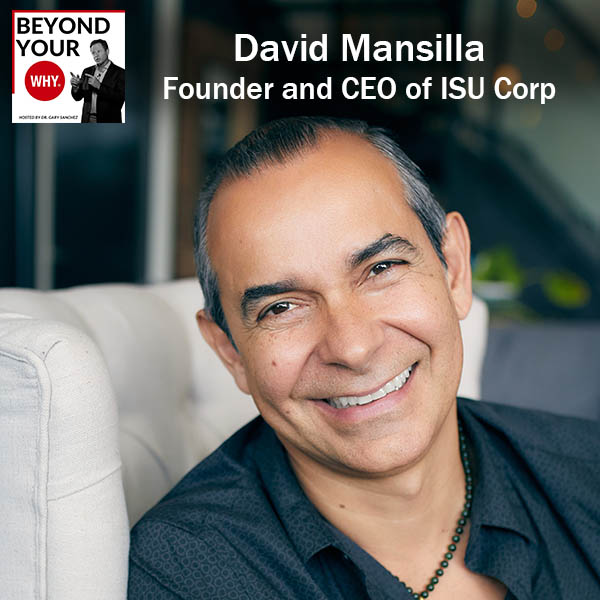
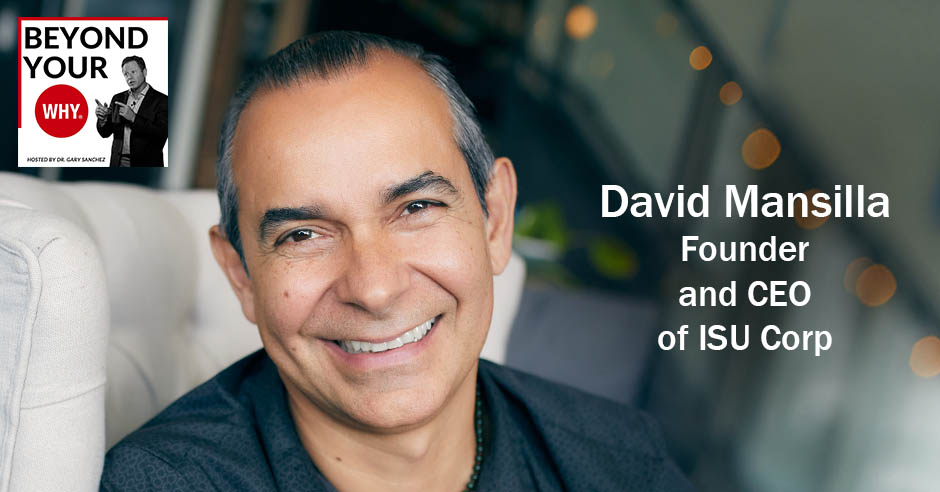

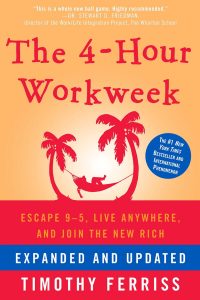


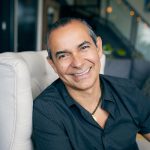 David is the founder and CEO of multiple businesses. Most prominent among them is his longest-running company, ISU Corp. ISU is a custom software solutions company with clients ranging from start-ups to multi-million-dollar conglomerates like General Electric and Heinz. Located in Canada’s Silicon Valley, ISU Corp increases entrepreneurs’ net profits with exceptional custom software solutions.
David is the founder and CEO of multiple businesses. Most prominent among them is his longest-running company, ISU Corp. ISU is a custom software solutions company with clients ranging from start-ups to multi-million-dollar conglomerates like General Electric and Heinz. Located in Canada’s Silicon Valley, ISU Corp increases entrepreneurs’ net profits with exceptional custom software solutions.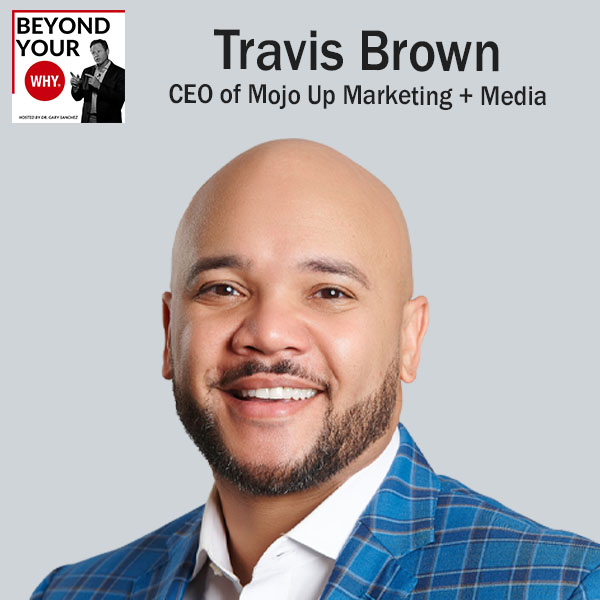
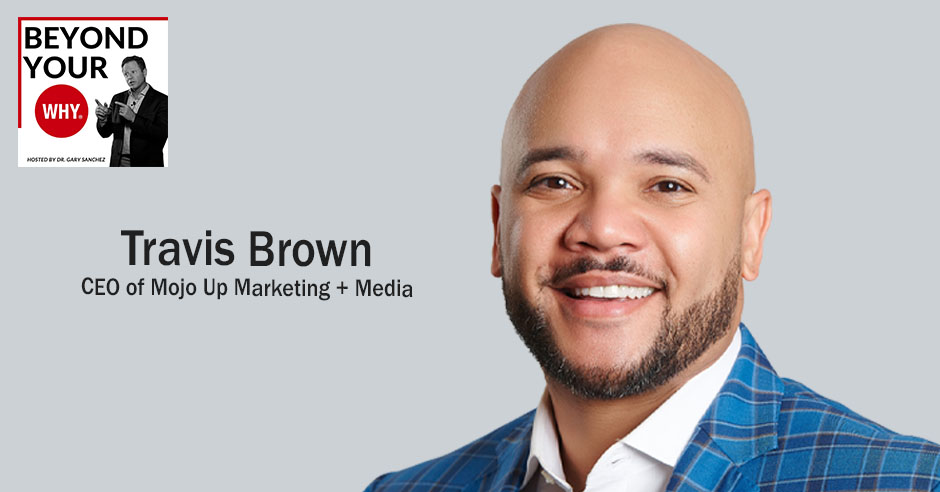





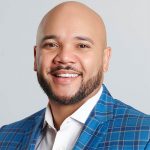 Travis Brown is the CEO of Mojo Up Marketing + Media. Mojo Up is an MBE certified, black-owned and minority-operated, full service, brand marketing agency that is made up of a diverse and talented team of marketing professionals and creatives. Our focus is to tell the story, shape the brand, and guide the marketing future of our clients as the make their greatest impact by using their greatest asset – their own authenticity.
Travis Brown is the CEO of Mojo Up Marketing + Media. Mojo Up is an MBE certified, black-owned and minority-operated, full service, brand marketing agency that is made up of a diverse and talented team of marketing professionals and creatives. Our focus is to tell the story, shape the brand, and guide the marketing future of our clients as the make their greatest impact by using their greatest asset – their own authenticity.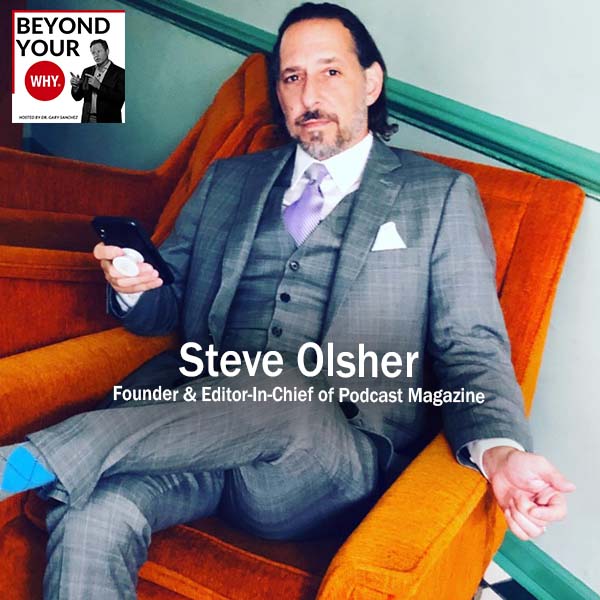
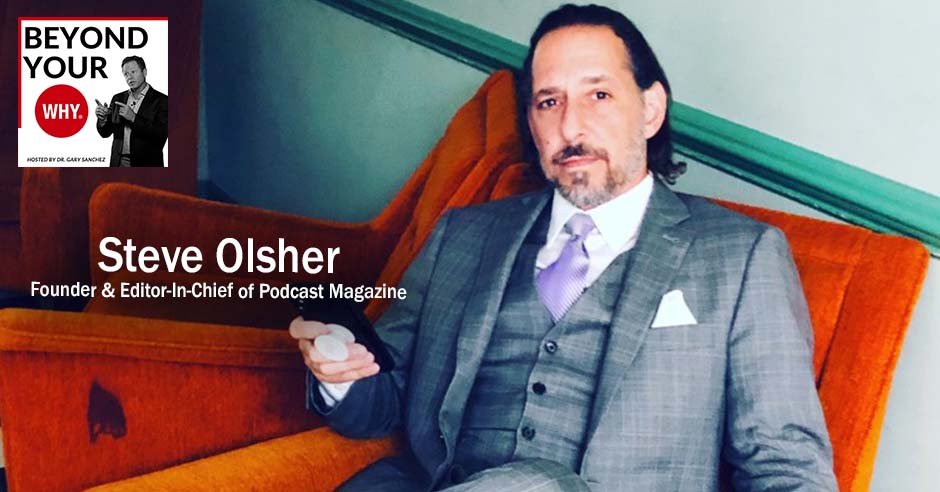

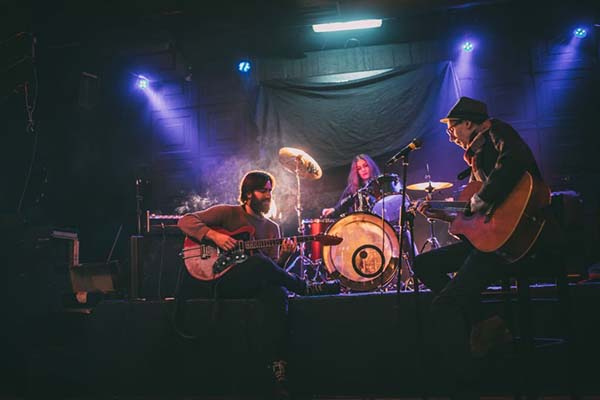



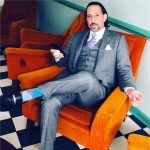 Founder/Editor-In-Chief of Podcast Magazine, Creator of ClubPod (the largest podcast group on social media), NY Times bestselling author, keynote speaker, Original Founder of Liquor.com, and the host of the top-rated podcast Reinvention Radio.
Founder/Editor-In-Chief of Podcast Magazine, Creator of ClubPod (the largest podcast group on social media), NY Times bestselling author, keynote speaker, Original Founder of Liquor.com, and the host of the top-rated podcast Reinvention Radio.